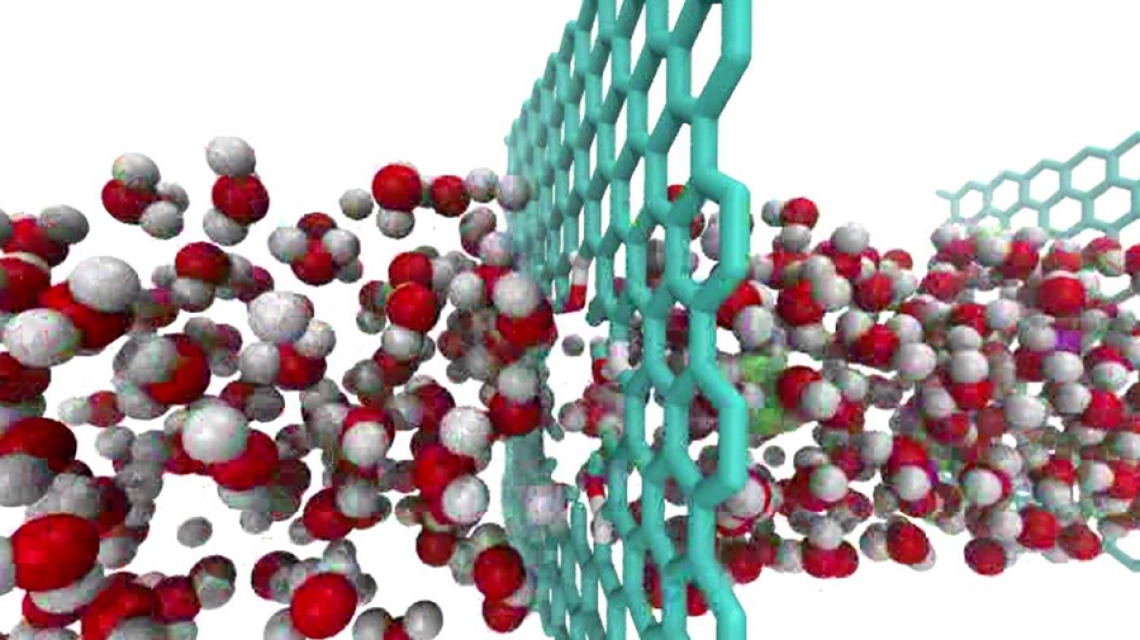
Masdar Institute and The University of Manchester (UoM) have announced that a joint project using graphene to improve water desalination techniques has been selected for US$500,000 (AED 1.8 million) funding from the United Kingdom (UK).
The funding is part of a project led by the UK Department for Business, Energy and Industrial Strategy in partnership with the British Council, which aims to strengthen partnerships with research bodies and higher education institutions in the Gulf. The Masdar Institute-UoM project was selected from 172 applications following an open call for joint research applications from the Gulf Cooperation Council member states in July 2016.
Global resource management leader Veolia (Veolia Recherche & Innovation), UK-based membrane processes technologies leader Modern Water and leading mineral project developer Neometals, will participate in this collaborative research project as industrial partners and potential end-users.
The project, led by Dr. Linda Zou, Professor, Chemical and Environmental Engineering, Masdar Institute, which is part of the newly-established Khalifa University of Science and Technology, and Prof Rahul Raveendran Nair, Professor of Materials Physics, The University of Manchester, will work on next generation high-performance graphene electrodes and membranes for water purification. This is an addition to the on-going collaborative Masdar Institute-University of Manchester graphene projects initiated in January 2016 to support the development of valuable advanced materials innovations for the UAE’s nascent high-tech industries.
Masdar Institute partnered with UoM – the university with faculty who were the first to isolate graphene – in a collaborative research engagement focused on “pre-competitive” research in graphene and related 2D materials for sensors, membranes and composites for the aerospace, defense and energy markets. Graphene is a one-atom thick sheet of carbon known as the lightest, strongest, thinnest, and best heat- and electricity-conducting material ever discovered.
Prof Nair, The University of Manchester, said: “We have known for some time that the benefits of graphene-oxide membranes could be disruptive for a number of industries. Graphene and related 2D materials are a fascinating area of research and I am excited about the potential for further breakthrough discoveries as we understand more and more about these novel one-atom-thick materials. The potential for new desalination technologies and water purification which utilize the superlative properties of graphene is something which can change lives for people without easy access to clean water..”
Dr. Behjat Al Yousuf, Provost, Masdar Institute, said: “We have seen great progress in our graphene-related research projects and are proud of Dr. Linda and Professor Nair for receiving this grant, which is a testament to their innovative talents and the potential graphene offers the water sector. This project and others like it are reshaping the way we think about improving water security in the UAE and other water-scarce regions around the world, and we look forward to seeing the results.”
The proposed project aims to design and engineer nano-structures for graphene-based electrodes and membranes, and further develop them for desalination and water purification applications. Emerging capacitive deionization (CDI) and membrane-based desalination technology are believed to have the potential to help meet global water demands in a more energy efficient manner. Integrating the nano-structured hierarchical graphene into the electrodes and membrane is hoped to overcome the limiting factors of relevant conventional materials, which are high energy consumption, low water production efficiency, and fouling.
“Keeping these problems in mind, our main objective is to develop a two-dimensional materials-based solutions for desalination and water purification in the form of a next-generation graphene-based electrodes and membranes. Our end goal is to transfer these research outcomes into water technologies so we can have a real-world impact on the global issue of water security,” Dr. Zou shared.
Dr. Zou’s expertise in water research is well-recognized. Earlier this year she filed a patent for the rain-enhancement research that won her the inaugural UAE Research Program for Rain Enhancement Science grant in 2016. Her collaborator at UoM is also well respected; Dr. Nair won the 2015 Moseley Medal from the Institute of Physics for his ‘outstanding contributions to understanding of the electrical, optical and structural properties of graphene and its sister compounds’.
Clarence Michael
News Writer
28 March 2017